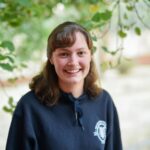In Islam and North America: Loving our Muslim Neighbors, Micah Fries and Keith Whitfield consider the reality of a growing Islamic presence in North America as an opportunity for us as North American Christians to share the gospel with our Muslim neighbors despite cultural and theological differences between us. There are three central concepts discussed throughout their book. First, the growing Muslim population in North America is generating fear, especially amongst Christians. Second, this fear is rooted in the significant cultural and religious differences that exist between Muslims and Christians, but it is not entirely valid. Third, we as North American Christians have a responsibility to let go of our fear and engage the expanding Muslim presence with the gospel, despite the differences between us.
The first four chapters of Islam and North America address the reality of the changing North American demographic and the fear it tends to provoke. As Ed Stetzer puts it, “Christianity is no longer the prevailing religious voice of North America.” Instead, a multiplicity of religious views competes throughout North America, and Islam is steadily gaining the upper hand. Many people are left frustrated and fearful by this situation, especially Christians. While it is not wrong to reminisce on Christianity’s past popularity, it is irresponsible and non-biblical to allow reminiscence to halt Great Commission efforts. But nostalgia is not the only issue. Acts of terrorism, the implementation of sharia law into North American politics, and cultural differences leave many Christians afraid of the potential implications linked to Muslim migration.

